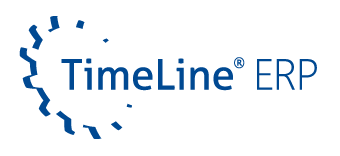Cloud computing – all about the data cloud
Whether start-ups, small businesses, medium-sized companies or large and established corporations – the benefits of the cloud are becoming increasingly popular. More and more companies are outsourcing their business processes and data to external data centers. Gone are the days when you had to worry about broken hard disks, lost USB sticks or accidentally deleting your data irrevocably. The available bandwidths are getting higher and higher and are less and less of a problem these days. This makes it possible to access large amounts of data from anywhere and, above all, quickly. But what exactly is cloud computing? What exactly happens to the data? What are the advantages? And how can you as a company benefit from an ERP cloud computing solution in the future?
What exactly is cloud computing?
Many of the terms used to describe digital innovations are older than you might think. This is also the case with the cloud. The first attempts were made back in the 1950s, but the technical conditions for implementation were still lacking at the time. Today, the concept is much more mature. The basic principle can be explained like this: Various workspaces are no longer stored on your own hard disk or the company’s internal computer but are made available via the Internet. A service provider provides you with a server in the form of a virtual data center. You can then access various applications for a fee. These can be, for example, individual programs, entire software packages, storage space or computing power. You do not need to install anything on your own computer, tablet or smartphone, all you need is access to the internet.

What are the three forms of cloud computing?
Cloud services can be divided into three different categories. Infrastructure as a Service (IaaS), Platform as a Service (PaaS) and Software as a Service (SaaS).
Infrastructure as a Service (IaaS)
IaaS is the simplest form of service. It is provided and managed via the internet. The components of the infrastructure provided include, for example, servers, computing and network capacities, communication devices such as routers, switches or firewalls, storage space and systems for archiving and data security. Access is via private and public networks. You only use the services that you actually need. You can expand or reduce the resources of this IT-infrastructure as you wish.
Platform as a Service (PaaS)
PaaS is a complete development and provisioning environment. It builds on the infrastructure of IaaS and is also equipped with everything you need to develop new software. PaaS not only supports you in creating and testing an application, but also in managing and updating it.
Software as a Service (SaaS)
SaaS is a method of providing software applications via the Internet. It is provided on demand and usually on a subscription basis. You connect to cloud-based apps via the internet and can then use them. Common examples include email, calendar and office tools. The service provider manages the hardware and software and ensures the availability and security of the app and your data when you sign a contract. They also take care of all maintenance tasks, such as installing software upgrades and security patches. With SaaS, your company can provide and use an app with minimal investment costs. With all three versions, you usually pay a fixed fee to the provider, usually on a monthly basis.
What cloud computing models are there?
No two clouds are the same. There are different types, and you can choose between three models:
Public cloud
The public cloud is a service that is accessible to everyone via the internet. These are often software as a service, such as web-based email services, which are used by private end users. In the public cloud, you share a common infrastructure with many other users. However, with this model, you as a user have little influence on data protection and security aspects, as well as the location and type of data storage. In addition, network bandwidth and availability are limited by predefined service packages.
Private cloud
The private cloud is an internal, organization-related cloud that only makes its applications available to authorized users. In contrast to the public cloud, the private cloud cannot be accessed by the general public via the internet. This model relocates the cloud either to the company’s own computers or to servers from external providers. Access is either via the demarcated intranet or via a closed virtual private network (VPN). As this form of cloud computing does not have to be shared with other users, it offers a high level of data security, control and flexibility.
Hybrid cloud
The hybrid cloud is a mixture of private cloud and public cloud. It attempts to combine the advantages of both cloud models in a joint concept and can be used in a variety of ways. You can store sensitive programs and data on your own servers and use certain services via the internet with public providers to conserve your own resources. Which cloud model you should choose depends on your individual requirements. Above all, however, you should keep security and data protection in mind.
What makes cloud computing so popular?
There are many reasons to use the cloud. Three major advantages are listed below:
Reduced costs
Probably the biggest advantage of a cloud service is the cost savings. The usually costly purchase and maintenance of your own servers, as well as maintenance, backups and updates, are completely eliminated. Hardware which requires regular upgrades to keep it up to date with the latest technology, is a significant cost factor. If you use a cloud service, you can confidently leave this worry to the respective provider. The same applies to the required software. This does not have to be purchased or installed and maintained on all computers. Instead, you usually pay a fixed monthly fee to the service provider and can conveniently use their services. You can also save the costs and, above all, the time for support and administration. Your IT-team will thank you for it!
Flexibility
Flexibility is also an increasingly important factor in many business processes. Using the cloud also offers you several advantages here. The files you store in the cloud are always available and on all end devices. It doesn’t matter whether you are at the company or working from home, all you need is access to the internet. It is also no problem to work on a file with several people at the same time. The files are automatically synchronized so that you can access the latest version on any device. Even large amounts of data can be made available within a very short time and with just a few mouse clicks. You can expand or reduce your storage space at any time – depending on what you need at the time. This avoids bottlenecks and overcapacity.
Security
Another major advantage is that you no longer have to worry about whether your data is secure. You don’t need a backup strategy or your own server. As a user, you also don’t have to worry about licenses or software updates. The backup is off-site, and your data is securely encrypted. The 3-2-1 backup rule is often used in this context to prevent your data from being lost. In a nutshell, the rule states that three copies of your data are created – primary storage, backup and off-site copy. Two different storage technologies are used for this and one of them is stored off-site. This distribution of risk across different technologies minimizes data loss due to system-related errors. So, if external circumstances such as flooding, theft or a fire render the data unusable, it can be ensured that there is another copy and the data is not lost.
The ERP cloud computing solution from Timeline ERP: the next step for your company
As you have read, you benefit from numerous advantages of a cloud – this is all the more true if you opt for an online ERP (Enterprise Resource Planning) solution. With ERP cloud computing you can easily control and analyze all your processes within your company (not just in the area of production) online and in real time – with the proven benefits of a cloud solution. As an experienced cloud ERP provider, Timeline ERP provides you with the necessary ERP software in the private cloud. Alternatively, a database can also be set up on your own server (on-premise). This allows you to quickly find the best option when implementing your ERP cloud computing. We will also be happy to advise you on your choice of cloud ERP software.
We clarify all questions about your new ERP cloud computing system
If you would like to find out more about ERP cloud computing or all TimeLine ERP products and functions, please send us a message using the contact form, write to [email protected] or contact our sales team on +49 212 230 35 200. We look forward to hearing from you! In our blog you can also discover more exciting background articles on the topic of ERP and how our ERP solutions can take your company to the next level.





